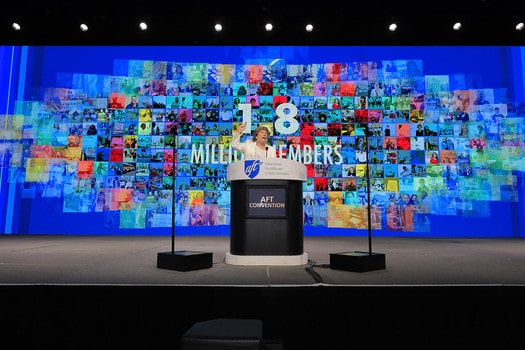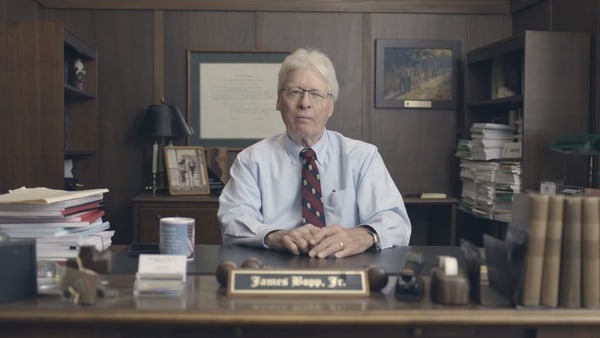He’s looking back at some of the “missed opportunities” that legislators had this session.
“With the resources we got from the state, I think we could have done a lot more to address some of the mental health permeating around the country,” he said.
But Taylor is also looking toward next year’s session, saying legislators need to get things like ballot initiatives on the agenda and that citizens’ voices aren’t being heard when it comes to controversial topics like marijuana or abortion.
Ballot initiatives are citizen-initiated ballot measures but are different depending on the state. The process allows people to propose statutes or constitutional amendments, but they have to collect signatures for their proposals to be on the ballot. Some states have an “indirect process” in which legislatures can approve certain proposals.
“Indiana’s one of the states in the country where the peoples’ voices are kind of muted when it comes to issues like cannabis, … abortion and other issues that I think that the state of Indiana has come full circle on,” Taylor said. “We can’t get those things on the ballot through the legislative process. I think giving the people of the state of Indiana an opportunity to chime in on different public policies issues would be important.”
Taylor has been a member of Indiana’s Senate Democratic Caucus since 2008; before that, he was a business and government attorney in Indianapolis. He is also one of 15 members of Indiana’s Black Legislative Caucus.
He mentioned his “consternation” about the state’s new budget. He said legislators gave a “small increase” to traditional public schools and that with the inflation rate, these schools are going to struggle to have the resources needed to do “basic education.”
Taylor said the state has put itself in a position where the people who have the most are the ones benefiting from the increased revenue while the ones who struggle the most are seeing a “dip.”
“So from my perspective, we need to look at issues like that and stop the culture wars that we see with the transgender community … and other communities that … legislators don’t want to support.” Taylor said.
Taylor said he would like to continue to work with the supermajority next session and to get “some small victories for Democrats in the state of Indiana.” Over 200 bills passed on to the governor’s desk this session, 20 of them Democratic.
Taylor said one thing he and his colleagues will do differently next year is to be ready for the “blitz at the intersection.” Taylor was referring to House Bill 1447, which passed at the tail end of the session; the bill had language from Senate Bill 12, which was about banning books. He said Democrats saw pieces of legislation that had either died in the Senate or didn’t get heard somehow make it back onto the agenda.
“It’s hard to keep track of that many pieces of legislation. Especially when you’ve got supermajorities, you can just change things at the end of the day. … At two o’clock in the morning, passing a budget bill is probably not the best thing for the citizens in the state of Indiana,” Taylor said.
He said this wasn’t the first time a “blitz” like this happened, saying people forget that this was how permitless carry got passed in 2022.
Taylor said the thing he found interesting was that Democrats have come up with pieces of legislation that have ended up being supported by the Republican supermajority. Taylor gave the example of eliminating textbook fees and said a lot of the bills that people see from the supermajority have come in the past from Democrats and “just because it’s a Democrat bill, they won’t support it.”
He also said that Democrats are still planning to continue pushing topics that failed this session. Taylor particularly noted that legislators have to do something about the high cost of child care and the lack of resources for child-care services across the states. He said children should be going to school at 5 years old but that Indiana has an “archaic law” not compelling children to go to school until they’re 7.
“To me, that has caused our educational attainment to go down. We’ve seen the proliferation of these private schools and wealthy people being able to access state funds that they would have never accessed in the past. And that just takes away from those people who really need the resources more. Education is a way out of poverty. It’s a way out of violence,” Taylor said.
“It’s one of the most important factors and one of the constitutional obligations that we have. … What never ceases to amaze me is that … 90% of the children that we educate just keep getting pushed back further and further back because the resources are going to other programs.”
Taylor said he prepares for each legislative session with a lot of “prayer and discussion.” He said the discussions are for gaining support on legislation from the other side of the aisle.
“A lot of that work is done prior to January when we see the legislative session start,” Taylor said. “October, November December, you’re trying to get support for your legislation and talk to [committee] chairs … about where your legislation is going to end up and hopefully getting an opportunity to get your pieces of legislation heard.”










